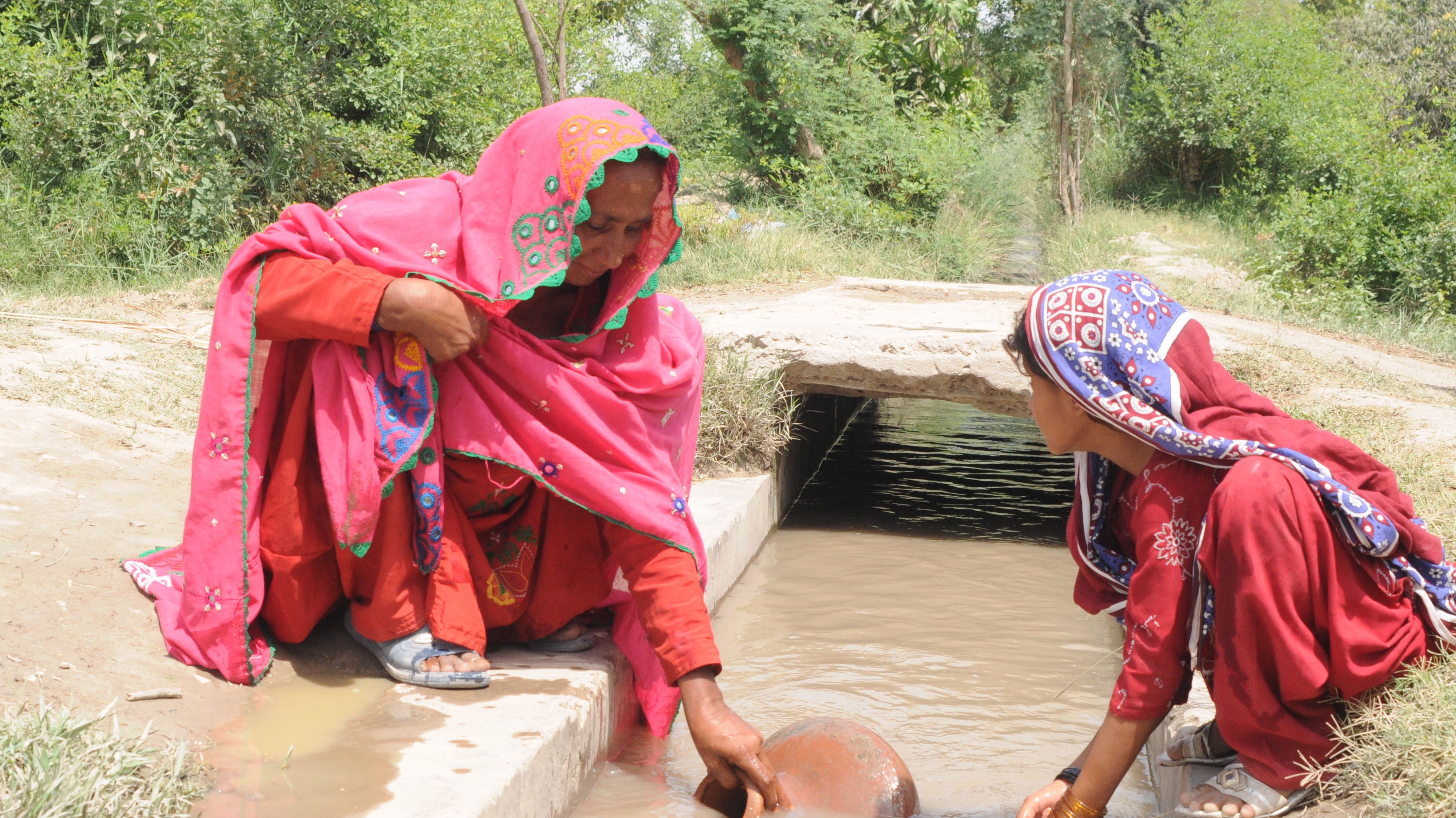SINDH PROVINCE, Pakistan – Water is power when the land is dry. Until recently, farmers who fell out of favor with irrigation officials in Pakistan risked losing their livelihoods.
But now a government initiative, backed by the World Bank, is giving people in Sindh province more control over their water resources, while ongoing canal rehabilitation work is also improving their access.
“In the past, even very junior canal officers were like gods who could simply stop water based on personal likes or dislikes. Huge politics and money could be involved,” says Farzana Abbasi, a social development specialist for the Sindh Irrigation and Drainage Authority (SIDA). “Now these reforms ensure everyone is fairly treated.”
Habib Baig, chairman of the new farmers’ organization at Duthro Minor irrigation channel, is pleased with the progress. His group reminds everyone of its importance with a sign erected at their village meeting place: “Many people have survived without love, but no one survives without water. Save water because it saves life.”
Water management system decentralizes power
Reform of irrigation systems all over Pakistan started about 20 years ago, and Sindh continues to make impressive strides, says Abbasi.
In recent years, Sindh has created its own multi-tiered water management system that decentralizes power through SIDA, several area water boards (which oversee about one-third of Sindh’s irrigated land), and more than 350 farmers’ organizations. Rather than having a single irrigation department, these groups now manage the province’s water supply together.
Reforms are ongoing. Most recently, the World Bank is supporting the Sindh Water Sector Improvement project to encourage the creation of more farmers’ organizations, as well as funding extensive repairs to about 173 irrigation channels, branches and distributaries.
The project also includes a mammoth dredging effort currently under way near the Nara Canal site, which is so heavily clogged with silt that water distribution is at half its capacity.

